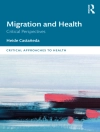This book brings together leading figures in history, sociology, political science, feminism and critical theory to interpret, evaluate, criticize and update Weber“s legacy. In a collection of specially commissioned pieces and translated articles the Weberian scholarship recognizes Max Weber as the figure central to contemporary debates on the need for societal rationality, the limits of reason and the place of culture and conduct in the supposedly post-religious age.
In Part 1, Wolfgang Mommsen, Wilhelm Hennis, Guenther Roth and Wolfgang Schluchter provide a full and varied account of the theme of rationalization in the world civilizations. In Part 2 Pierre Bourdieu and Barry Hindess critically examine Weber“s social action model, and Johannes Weiss and Martin Albrow address the putative “crisis“ of Western rationality. In Part 3 Jeffrey Alexander, Ralph Schroeder, Bryan Turner, Roslyn Bologh and Sam Whimster scrutinize Weber“s understanding of modernity with its characteristic plurality of “gods and demons“; they focus on its implications for individuality and personality, the body and sexuality, feminism and aesthetic modernism. Part 4 turns to politics, law and the state in the contemporary world: Colin Gordon on liberalism, Luciano Cavalli on charismatic politics, Stephen Turner and Regis Factor on decisionism and power and Scott Lash on modernism, substantice rationality and law.
This book was first published in 1987.












